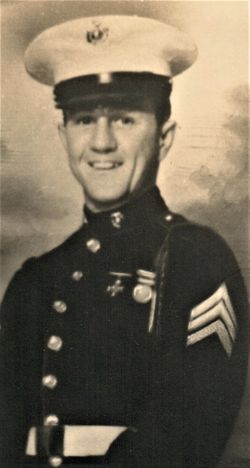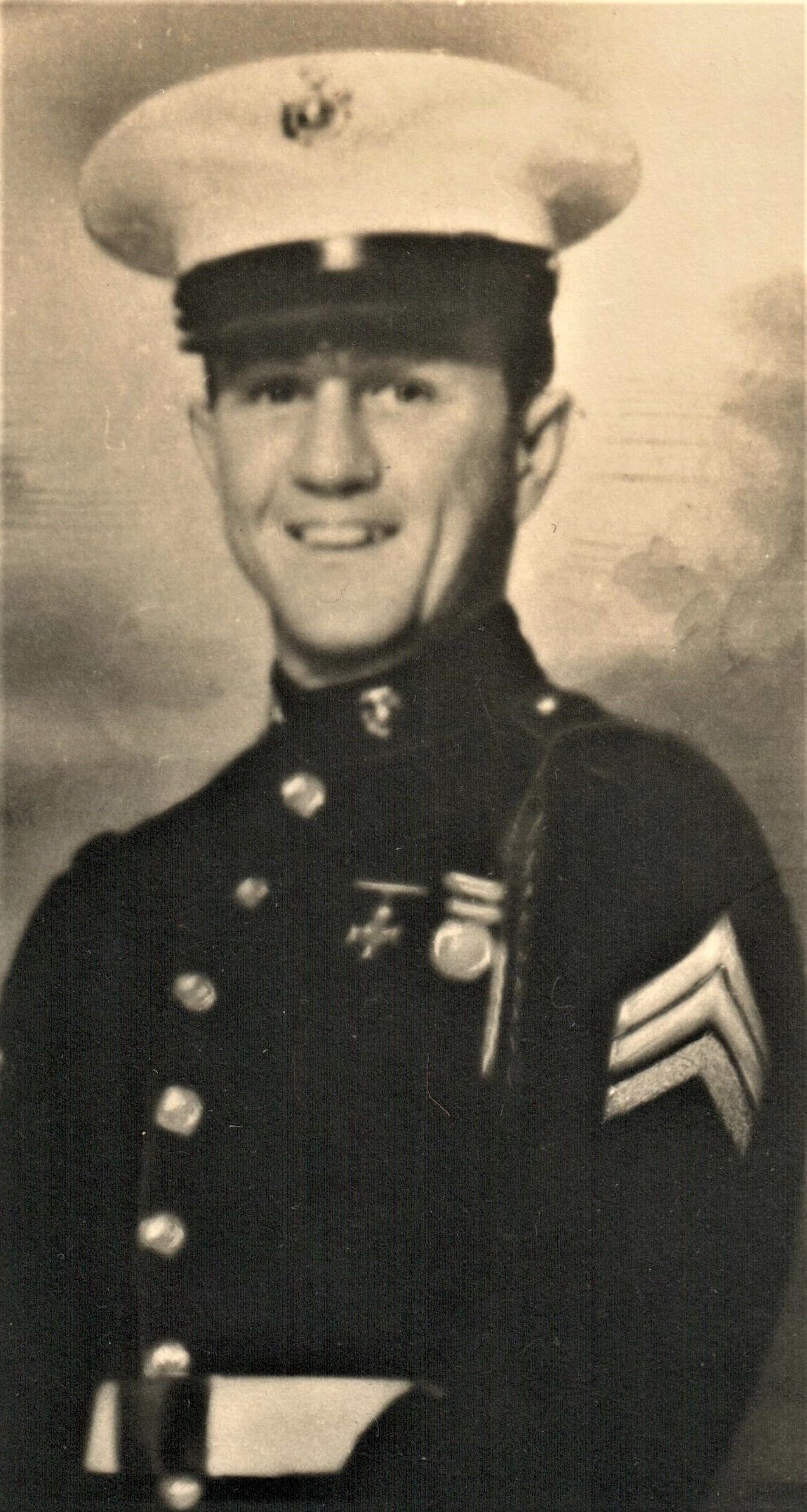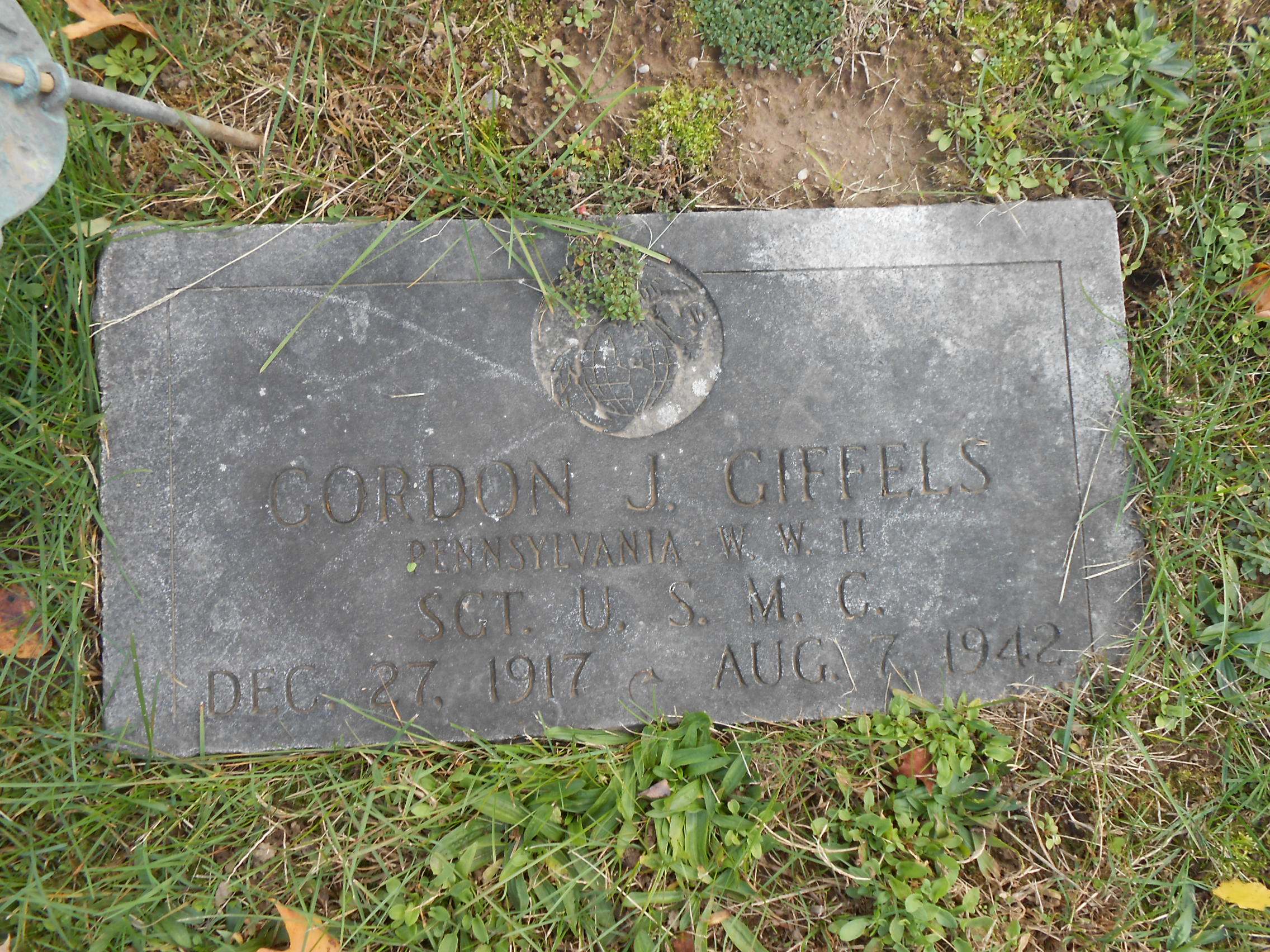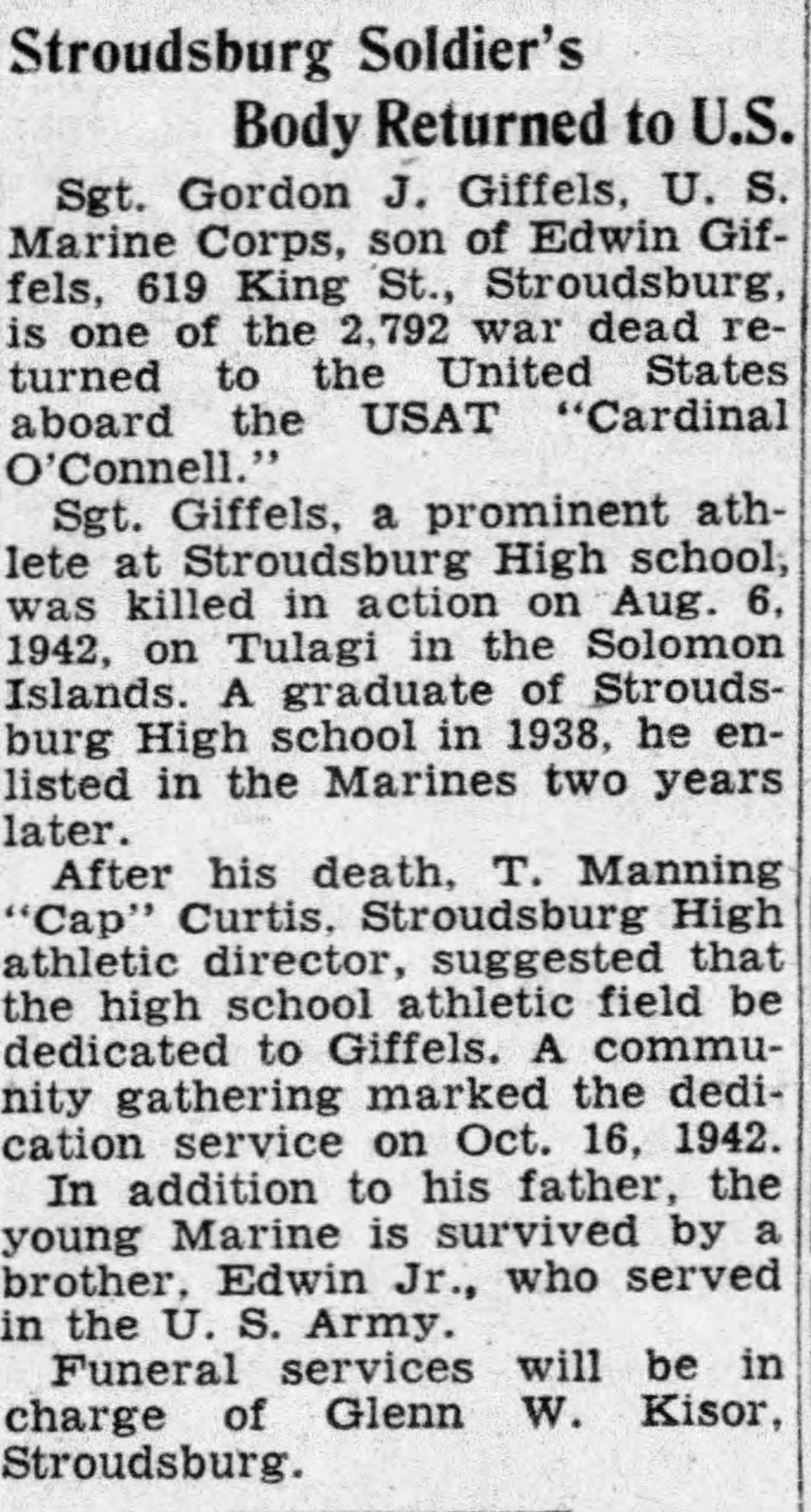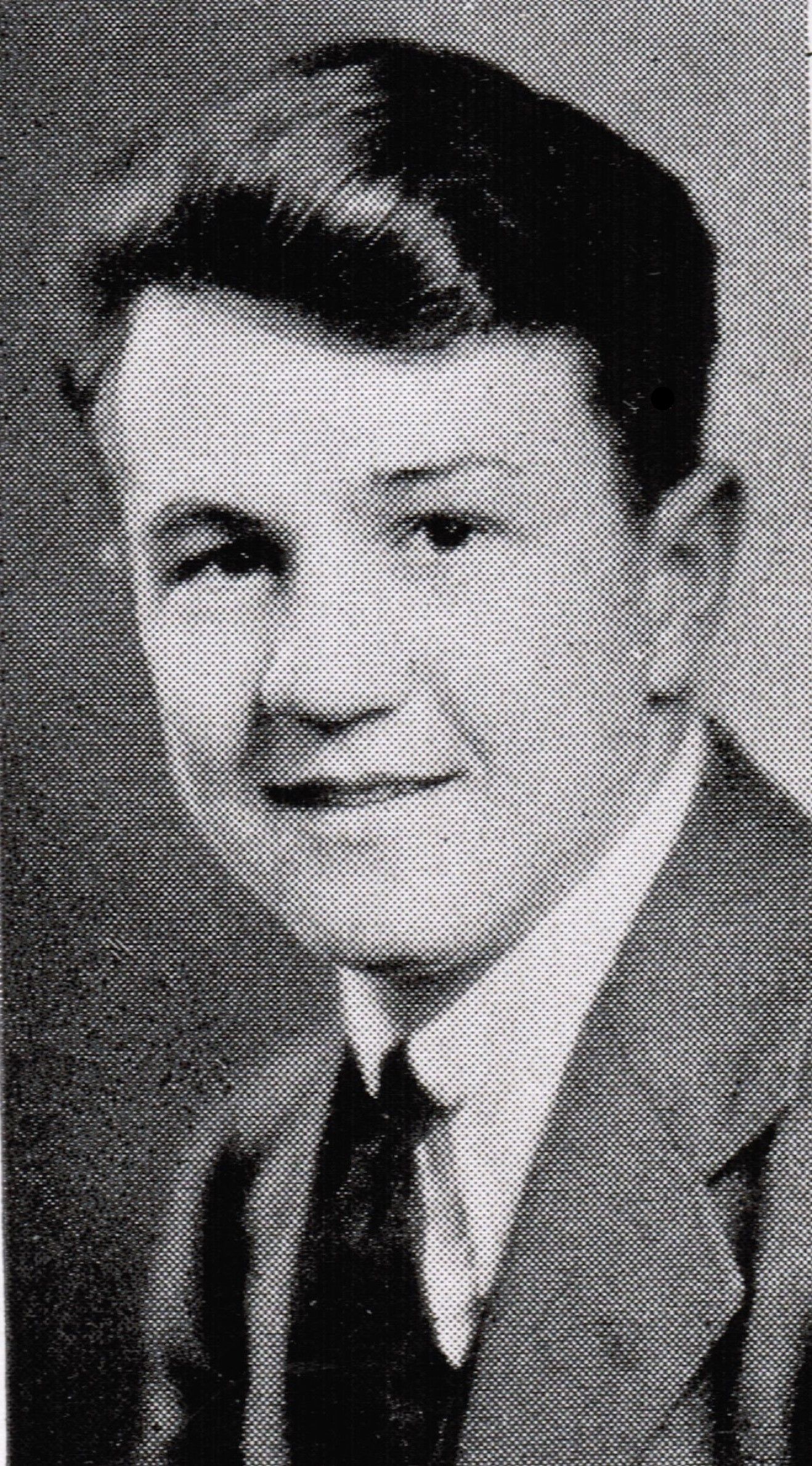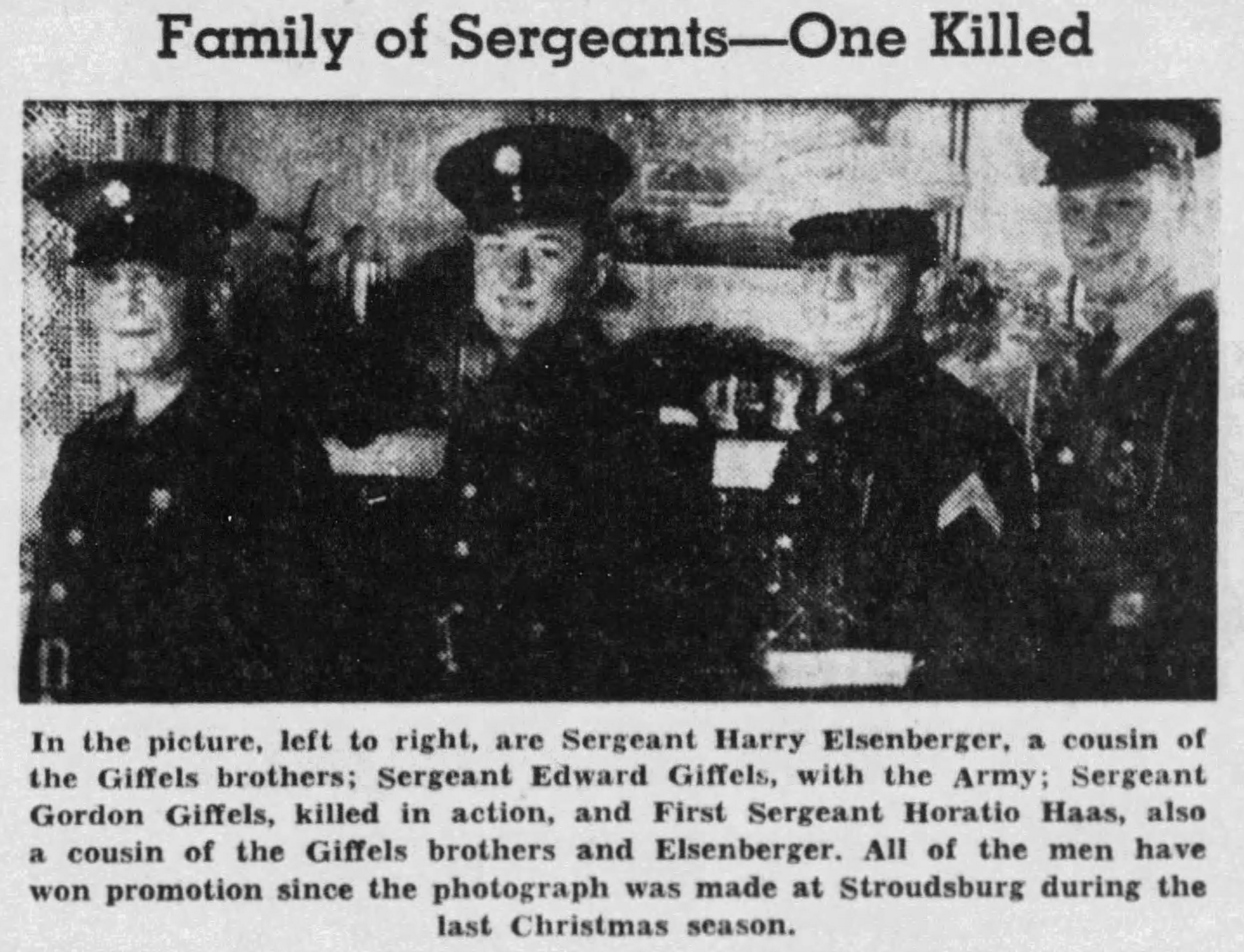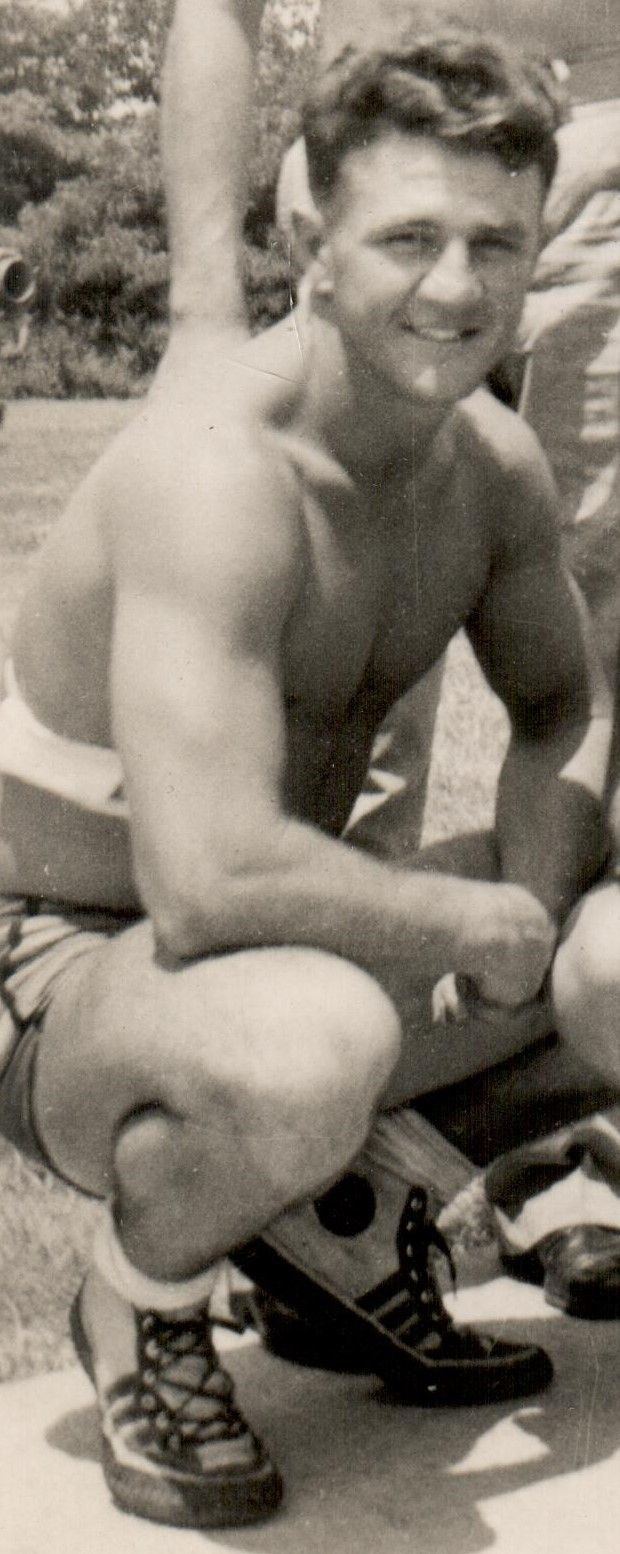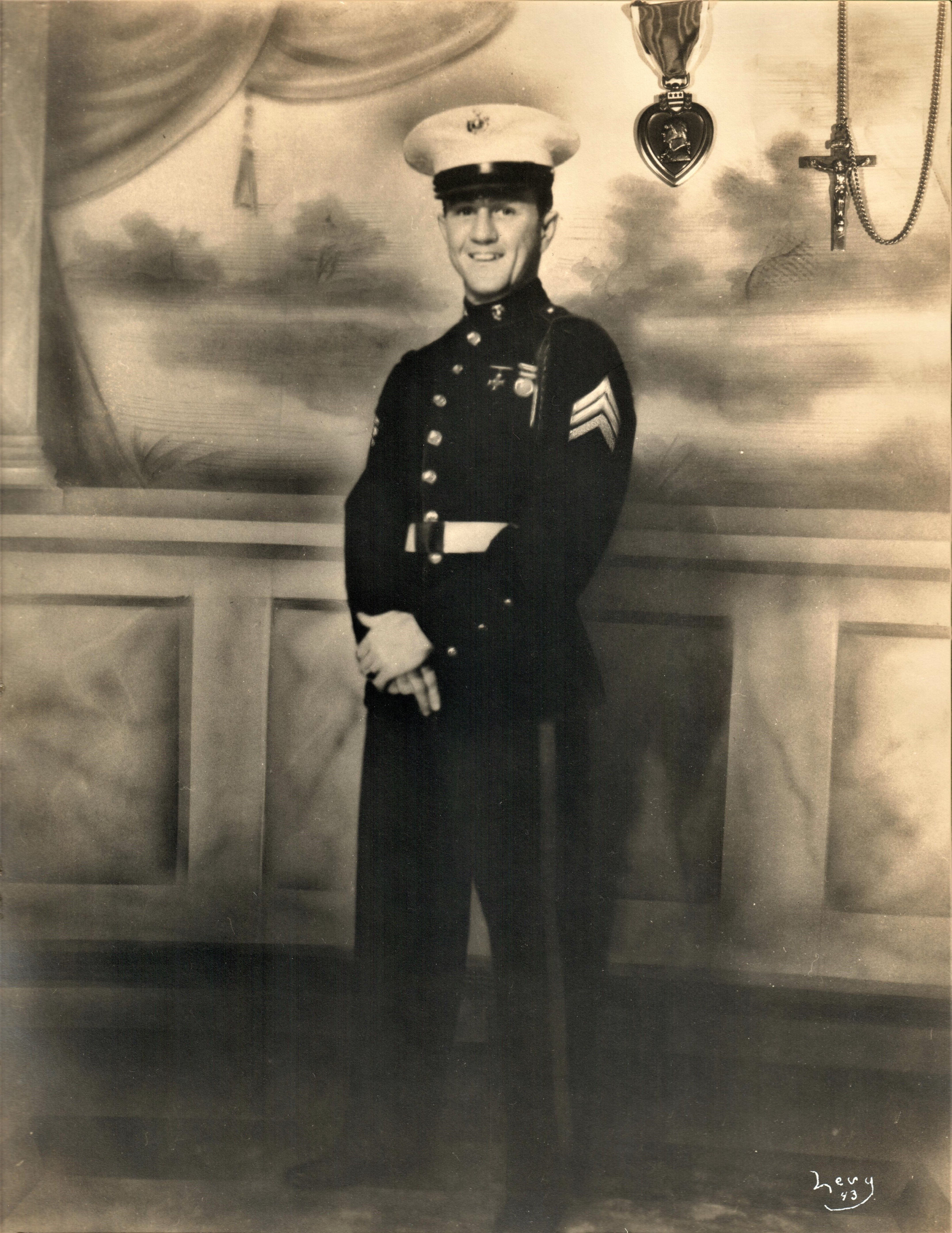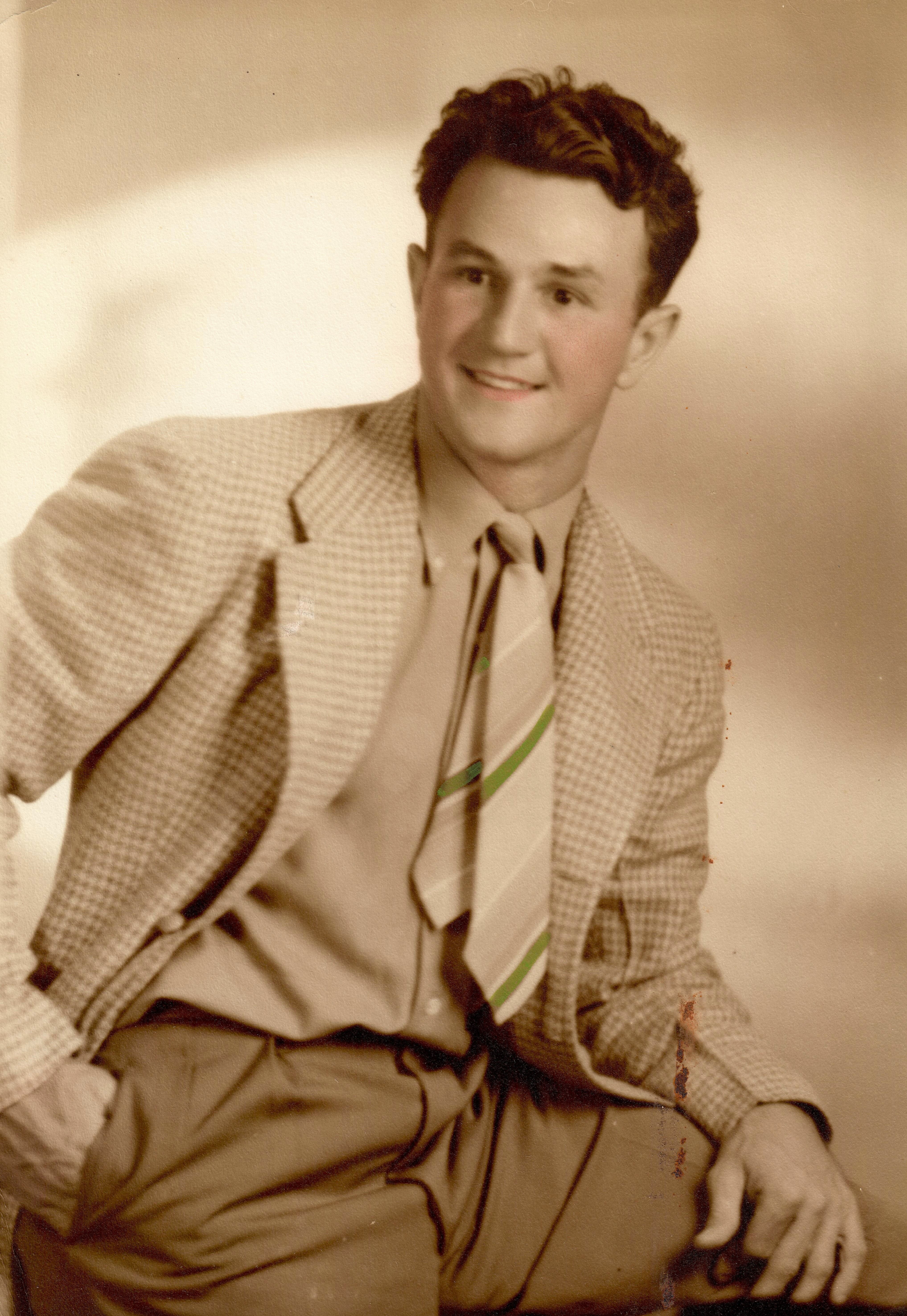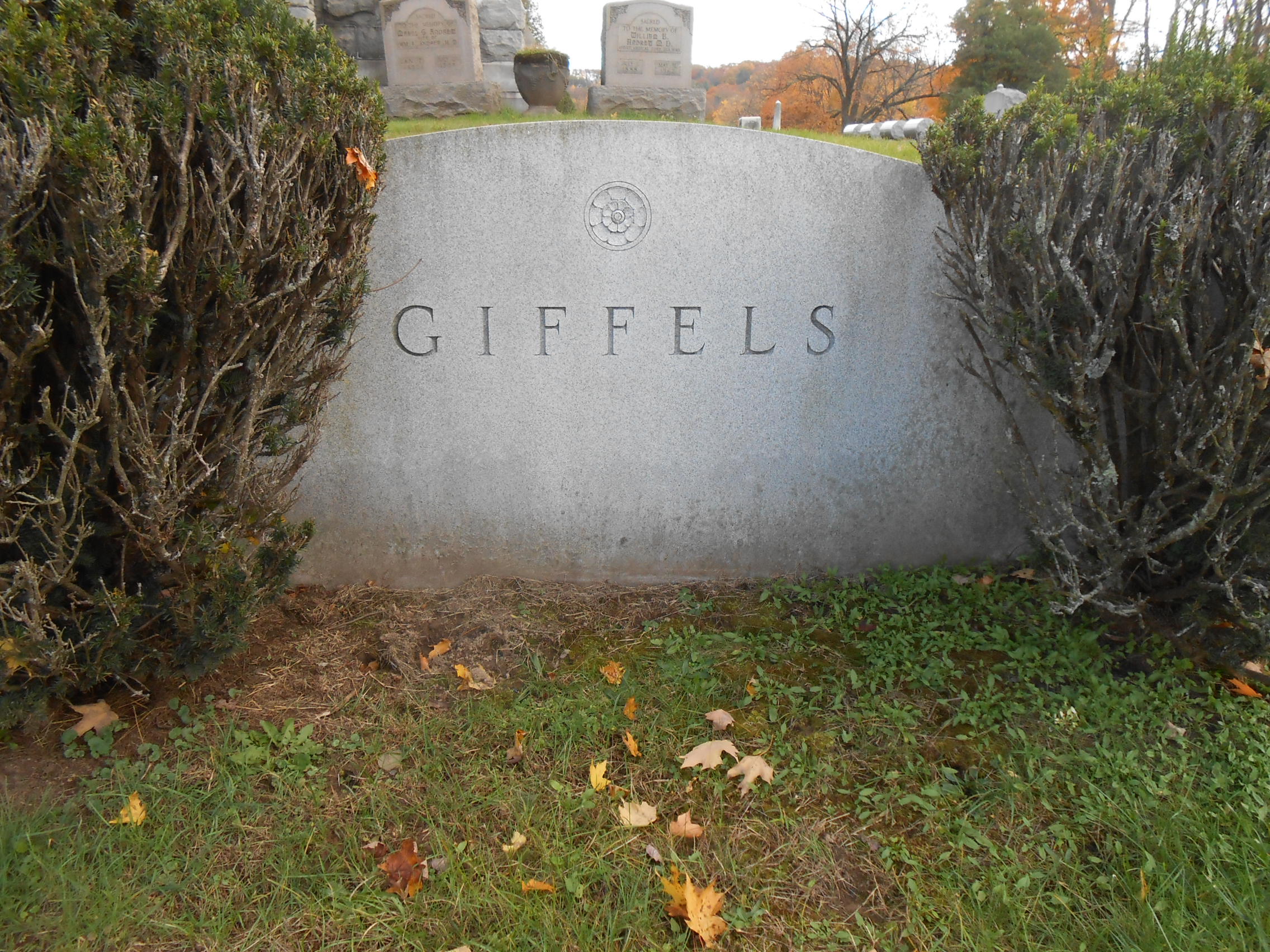1st Battalion | 5th Marine Regiment | 1st Marine Division | 1st Marine Raider Battalion
Gordon Giffels holds a unique place in the pantheon of Pennsylvania pioneers and patriots. A 1936 Stroudsburg High School graduate who excelled as an all-around athlete and student government leader, Giffels demonstrated his valiant spirit when he entered military service in 1938 and later promoted to the rank of United States Marine Corps Sergeant and Rifle Squad Leader in the 1st Marine Division, 1st Marine Raider Battalion.
Selected for a first of its kind U.S. Armed Forces special operations unit in the Pacific Theater of World War II, Sergeant Giffels was an elite military fighting man who possessed the exceptional physical/technical/tactical skills to pioneer a new type of amphibious and ground attack warfare deep behind enemy lines. A commando specializing in high-value targets while using limited weapons and support resources to defeat larger-in-number enemy combatants, Sergeant Giffels pioneered the foundational model for special forces in all branches of the U.S. military in the modern era.
Conducting himself with distinct courage, honor, and grit in the first ever U.S. offensive of World War II against the Empire of Japan, the Battle of Tulagi, Sergeant Giffels was recognized for having distinguished himself through daring, bravery, and individual initiative in the Marine Raiders’ baptism of fire known as the first hell in the Pacific.
Sergeant Giffels was the first Stroudsburg resident and graduate from its high school to die in World War II when he was killed in action on August 7, 1942, in fierce fighting following ferocious counterattacks by elite Imperial Japanese forces after Marine Raiders had advanced to the final enemy combatant stronghold on the island of Tulagi.
Dignitaries and United States Marie Corps Honor Guard joined hundreds of people gathered in Stroudsburg on October 16, 1942, to memorialize a native son with the naming of the high school’s football and baseball field as Gordon Joseph Giffels Athletic Field.
Gordon’s life and legacy reflect the qualities of integrity, mettle, and responsibility, which helped him build and maintain the trust, respect, and loyalty of others while establishing mutually beneficial relationships. He cared deeply about people and demonstrated empathy and compassion for others in his spoken and written words. Mark Twain said “It’s not the size of the dog in the fight, but the size of the fight in the dog.” Gordon was fearless in any situation or circumstances. His inner strength and character attracted people and made him an honored son, brother, teammate, battlefield comrade, and friend. Peace, stability, and justice were important to Gordon. He held unconditional respect for people, didn’t like injustice, and was protective of others’ rights to fairness, equal treatment, and overall well-being. Gordon was a friend a friend would like to have.
1st Battalion | 5th Marine Regiment | 1st Marine Division | 1st Marine Raider Battalion
Gordon Giffels holds a unique place in the pantheon of Pennsylvania pioneers and patriots. A 1936 Stroudsburg High School graduate who excelled as an all-around athlete and student government leader, Giffels demonstrated his valiant spirit when he entered military service in 1938 and later promoted to the rank of United States Marine Corps Sergeant and Rifle Squad Leader in the 1st Marine Division, 1st Marine Raider Battalion.
Selected for a first of its kind U.S. Armed Forces special operations unit in the Pacific Theater of World War II, Sergeant Giffels was an elite military fighting man who possessed the exceptional physical/technical/tactical skills to pioneer a new type of amphibious and ground attack warfare deep behind enemy lines. A commando specializing in high-value targets while using limited weapons and support resources to defeat larger-in-number enemy combatants, Sergeant Giffels pioneered the foundational model for special forces in all branches of the U.S. military in the modern era.
Conducting himself with distinct courage, honor, and grit in the first ever U.S. offensive of World War II against the Empire of Japan, the Battle of Tulagi, Sergeant Giffels was recognized for having distinguished himself through daring, bravery, and individual initiative in the Marine Raiders’ baptism of fire known as the first hell in the Pacific.
Sergeant Giffels was the first Stroudsburg resident and graduate from its high school to die in World War II when he was killed in action on August 7, 1942, in fierce fighting following ferocious counterattacks by elite Imperial Japanese forces after Marine Raiders had advanced to the final enemy combatant stronghold on the island of Tulagi.
Dignitaries and United States Marie Corps Honor Guard joined hundreds of people gathered in Stroudsburg on October 16, 1942, to memorialize a native son with the naming of the high school’s football and baseball field as Gordon Joseph Giffels Athletic Field.
Gordon’s life and legacy reflect the qualities of integrity, mettle, and responsibility, which helped him build and maintain the trust, respect, and loyalty of others while establishing mutually beneficial relationships. He cared deeply about people and demonstrated empathy and compassion for others in his spoken and written words. Mark Twain said “It’s not the size of the dog in the fight, but the size of the fight in the dog.” Gordon was fearless in any situation or circumstances. His inner strength and character attracted people and made him an honored son, brother, teammate, battlefield comrade, and friend. Peace, stability, and justice were important to Gordon. He held unconditional respect for people, didn’t like injustice, and was protective of others’ rights to fairness, equal treatment, and overall well-being. Gordon was a friend a friend would like to have.
Family Members
Sponsored by Ancestry
Advertisement
Explore more
Sponsored by Ancestry
Advertisement
